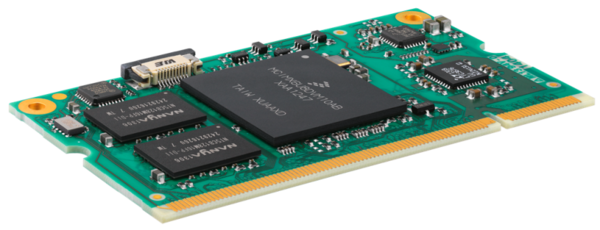DHCOM iMX6-D2: Difference between revisions
From Wiki-DB
Jump to navigationJump to search
| Line 67: | Line 67: | ||
* Mainline | * Mainline | ||
:* [https://github.com/dh-electronics/linux-imx6qdl/tree/dev/4.4.60_dhcom DH 4.4.60 Development] | :* [https://github.com/dh-electronics/linux-imx6qdl/tree/dev/4.4.60_dhcom DH 4.4.60 Development] | ||
:* [https://github.com/dh-electronics/linux-imx6qdl/tree/release/4.4.60_dhcom/20190926 DH 4.4.60 Release 2019-09-26 (for Yocto build)] | :* [https://github.com/dh-electronics/linux-imx6qdl/tree/release/4.4.60_dhcom/20190926 DH 4.4.60 Release 2019-09-26 (used for Yocto build)] | ||
:* [https://github.com/dh-electronics/linux-imx6qdl/tree/dev/3.14.12_dhcom DH 3.14.12 Development] | :* [https://github.com/dh-electronics/linux-imx6qdl/tree/dev/3.14.12_dhcom DH 3.14.12 Development] | ||
* NXP Vendor | * NXP Vendor | ||
Revision as of 10:34, 3 June 2020

|
Hardware
|
|
Software Support
BSP Sources
- Mainline
- NXP Vendor
Download binaries/images
U-Boot (for eMMC DHCOMs)
- More on how to program it with the U-Boot command "update bootloader ..." on the page "DHCOM Update Mechanism"
Update Kernel
- More on how to use it on the page "DHCOM Update Mechanism"
Debian based images
- Debian 8 "Jessie" + Kernel 4.4.60 Release 2017-05-29
-
- Open it with Disks by double click on Debian Linux. Use balenaEtcher on Windows.
-
- Extract the files on a USB stick (MBR / FAT32) and insert it into your board / device. More about the files on the page "DHCOM Update Mechanism"
- Debian 8 "Jessie" with Qt5.9.1 + Vendor Kernel 4.1.15 Release 2017-10-06
-
- Open it with Disks by double click on Debian Linux. Use balenaEtcher on Windows.
-
- Extract the files on a USB stick (MBR / FAT32) and insert it into your board / device. More about the files on the page "DHCOM Update Mechanism"
Hint: You can also progam the eMMC by using the U-Boot command "ums" (usable since v2018.05)
Download Linux code examples
Download WEC
WEC7 DHHalLib.dll (function library)
- Download DHHalLib Library Version 1.3.0.0
- DHHalLib Demo App Source Code
- DHHalLib Demo App Binary File
- Download DHHalLib CSharp Demo Wrapper App
- Download DHHalLib CSharp Demo Wrapper App Binary File